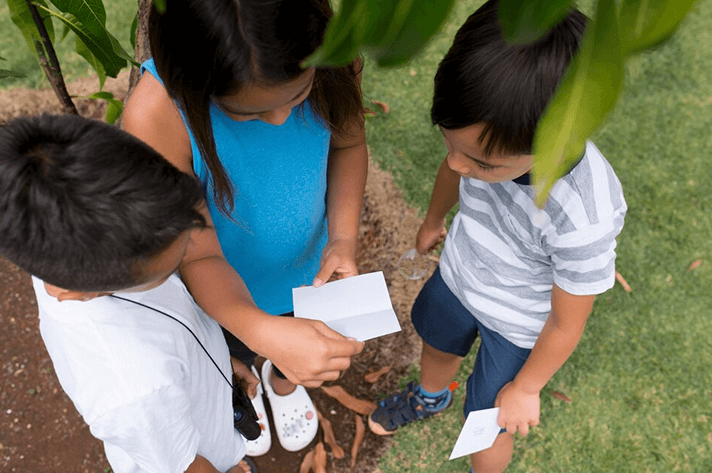
Top 10 Benefits of Environmental Education
Environmental challenges like climate change and biodiversity loss are grave global issues. Addressing these concerns begins by teaching young minds and creating a feeling of responsibility for environmental sustainability. Environmental education extends beyond traditional courses, allowing students to connect with real-world issues while learning how to make a positive difference. This article delves into the 10 benefits of environmental education, highlighting its transformational potential.
Top 10 Benefits of Environmental Education:
Environmental education is vital to nurture ecologically responsible people. It builds knowledge and accountability among kids by involving them in nature and sustainability. The top ten benefits of environmental education are listed below, highlighting its transforming influence on young minds.
Encouraging Environmental Awareness:
Environmental education has the vital benefit of raising environmental consciousness and helping pupils learn about ecosystems and the challenges faced. Students gain a higher respect for our planet and realise the influence of human activities, learning in-depth about pollution, sustainability, and climate change. This knowledge instils a feeling of responsibility, empowering them to adopt ethical habits and make decisions that benefit the environment.
Instils Respect and Wonder:
Environmental education fosters immense respect and amazement for the environment by exposing pupils to nature’s beauty and intricate complexity. Outdoor adventures and exploration provide learners with personal knowledge of many ecosystems, fauna, and landscapes. This exposure promotes a profound awareness of the environment while also fostering curiosity and reverence for life’s interconnectivity. Environmental education encourages students at elementary schools in Pasig to preserve and safeguard our precious natural resources.
Teaches Children to Be Kind to Animals and People:
Environmental education teaches students compassion by encouraging them to be kind to animals, humans, and the natural environment. Students gain empathy and respect for the lives and habitats of animals as they study ecosystems and the importance of animal preservation. Exploring the environmental effects on communities helps children develop a sense of ethical conduct and lays the groundwork for becoming caring, responsible adults.
Boosts Creativity and Enthusiasm:
Environmental education fosters creativity and excitement in young minds by fostering hands-on, innovative learning opportunities. Curious students are frequently encouraged to think beyond the box when confronting real-world issues. They are inspired to create sustainable initiatives and envisage efficient approaches to tackle pollution and climate change. The participatory aspect of primary ecological education encourages pupils to think imaginatively about making a positive impact.
Encourage Sustainable Practices:
Environmental education promotes sustainable behaviours by teaching pupils about eco-friendly habits. Students discover practical ways to reduce their ecological impacts, like recycling, saving water, decreasing trash, and purchasing sustainable items. It teaches learners the value of sustainability and allows them to make informed decisions. The benefits of environmental education include a ripple effect as EE encourages the people closest to students to adopt a healthier way of life.
Enhances Critical Thinking Capabilities:
Environmental education improves analytical thinking skills by requiring pupils to understand complicated concerns and provide solutions. It motivates kids to question, evaluate, and assess information from varied perspectives. Students improve their creative and problem-solving abilities by addressing real-world issues, including climate change, preservation, and pollution. It builds students’ logical skills and equips them to make educated decisions in all aspects of their lives.
Encourages Students to Live a Healthy Lifestyle:
Environmental education inspires pupils to live healthy lifestyles by introducing them to nature and encouraging physical activity. This exposure to natural environments promotes physical fitness, decreases stress, enhances mental health, and instils a sense of tranquillity. Further, learning about clean water, air, and nutritional food options motivates learners to make healthier choices. Students are more inclined to emphasise their personal and ecological wellness.
Connect Classroom to Real-World Contexts:
Environmental education applies classroom learning in real-world settings by allowing students to delve into environmental concerns that affect their surroundings and the planet. Hands-on projects and community activities at good schools in Manila enable learners to apply academic knowledge to real-world challenges, like waste elimination or water conservation. This practical approach improves learning by making it more relevant and meaningful, promoting a better understanding of their environmental impact.
Develops a Sense of Responsibility:
Environmental education instils a feeling of responsibility in children by teaching them about the consequences of their choices on the planet. As kids learn about preservation and sustainable living, they understand the significance of making educated choices. This instruction promotes accountability and encourages pupils to embrace environmentally friendly activities. Environmental education motivates students to accept responsibility for their role in building a better tomorrow.
Building Social Connections:
Environmental education develops social bonds by encouraging pupils to work together and collaborate. Students interact with classmates having similar environmental interests and beliefs through shared tasks, outdoor activities, and volunteer work. This collaborative mentality fosters friendships while improving interpersonal and communication abilities. Learners work together to achieve common goals as they build a sense of belonging and mutual respect, resulting in long-lasting connections.
Conclusion:
Environmental education delivers tremendous benefits by raising awareness about sustainable lifestyles. Learning the top 10 benefits of environmental education encourages critical thinking and fosters a feeling of civic duty. Environmental education instils in children a lifetime appreciation for the planet while empowering them to make significant changes. Integrating EE into classrooms benefits children individually and helps to create a healthier, cleaner place for future generations.

